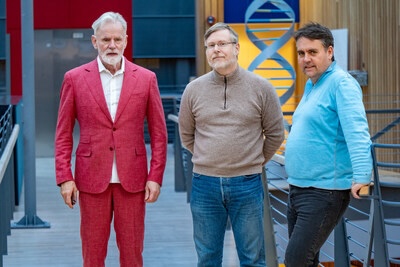In a breakthrough that could significantly impact fertility treatments and reproductive health, deCODE genetics/Amgen has published the first complete map of human DNA recombination in Nature. The research provides unprecedented insights into how genetic material is mixed and passed down during reproduction, offering new understanding of infertility causes and pregnancy complications.
The map is groundbreaking for two key reasons. First, it’s the first to capture shorter-scale DNA shuffling between grandparents’ genetic material (known as non-crossover recombination), which has been historically difficult to detect due to DNA sequence similarities. Second, it identifies protected DNA regions that resist reshuffling – a mechanism that appears to safeguard critical genetic functions and prevent chromosomal issues.

This recombination process, essential for creating genetic diversity, can also be a source of reproductive challenges. When errors occur during DNA shuffling, they can result in genetic issues that prevent pregnancies from continuing – helping explain why infertility affects approximately one in ten couples worldwide.
The research revealed significant gender differences in DNA recombination patterns that could have implications for fertility treatment approaches. Women experience fewer non-crossover recombinations overall, but their frequency increases with age. This age-related change may help explain why advanced maternal age correlates with higher risks of pregnancy complications and chromosomal disorders. In contrast, men’s recombination patterns remain stable with age, though both sexes’ recombination processes can contribute to mutations passed to offspring.
The findings also demonstrate that genetic mutations occur more frequently near DNA mixing regions, suggesting these processes are highly interconnected. This understanding could lead to improved diagnostics and treatments for fertility issues and pregnancy complications.
The research represents the culmination of 25 years of investigation at deCODE genetics into how new genetic diversity is generated and its relationship to health and disease.
Based in Reykjavik, Iceland, deCODE genetics is a global leader in analyzing and understanding the human genome. Using its unique expertise and population resources, deCODE has discovered genetic risk factors for dozens of common diseases. The purpose of understanding the genetics of disease is to use that information to create new means of diagnosing, treating and preventing disease. deCODE genetics is a wholly-owned subsidiary of Amgen



